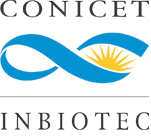Algal Research, Volume 22, March 2017, Pages 140-147, 2017
Highlights
A screening for carbohydrate-rich microalgae was conducted.
An apparently novel strain accumulated up to 70% (w/w) carbohydrates.
Culture conditions for carbohydrates productivity have been optimized.
Saccharification by diluted acid and fermentation by yeast have been optimized.
0.24 g ethanol− 1·g biomass− 1, and 61 g ethanol− 1·L broth− 1 are shown.
Abstract
While the production of biofuels holds potential to contribute to energy security, concerns on food prices, land use, and carbon emissions have arisen from increased production of first-generation bioethanol. While second-generation bioethanol from lignocellulosic agricultural waste faces difficult-to-overcome technological barriers, renewed promise is held in microalgae biomass as an alternative feedstock. In this work we show the results of bioprospecting for microalgae native of South America for accumulation of carbohydrates under conditions of nitrogen deficiency, and constant light and temperature. After a preliminary analysis of seventeen strains, we selected strain SP2-3, because its biomass could be enriched in carbohydrates over 70% (w/w) on a dry biomass basis, and Desmodesmus sp. strain FG for its fermentable sugars productivity. After optimization of microalgae culture conditions, biomass hydrolysis and fermentation with baker’s yeast Saccharomyces cerevisiae, we demonstrated ethanol yields of up to 0.24 g ethanol·g of biomass− 1, and an ethanol concentration in the fermentation broth of 24 g ethanol·L of fermentation broth− 1, for up to 87.4% of the maximum theoretical value. These results contribute to support the potential of microalgae biomass as an alternative feedstock for bioethanol and the value of bioprospecting programs to identified candidate strains among natural biodiversity.
